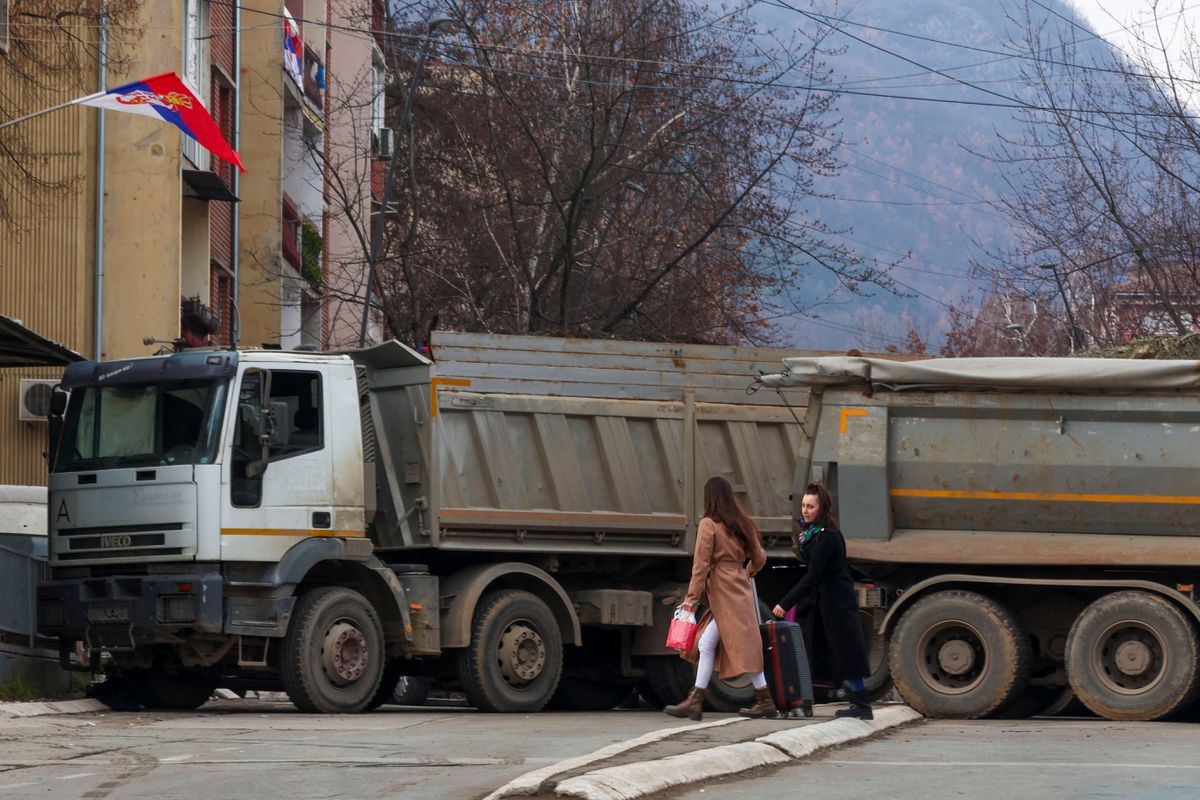In response to requests from the US and EU to reduce tensions, Kosovo Serbs who have been blocking roads in northern Kosovo for 19 days have agreed to begin removing barricades on Thursday morning.
The process of taking down barricades will start on Thursday morning, according to Serbian President Aleksandar Vucic, who met with Serbs from northern Kosovo in the Serbian town of Raska.
Vucic stated, “It is a long procedure and will take some time.
Additionally, he said that the European Union and the United States, who are serving as the mediators for negotiations between Belgrade and Pristina to settle unresolved bilateral issues, have promised that none of the Serbs who erected barriers will face legal action.
Belgrade and Pristina’s tensions should ease if the barricades are taken down.
Kosovo has caused conflict for more than 20 years between the West, which supported Kosovo’s independence, and Russia, which backs Serbia in its efforts to prevent Kosovo from joining international organizations like the UN.
As tensions with the local Serb population over Kosovo’s 2008 independence increased and officials closed a third border crossing on Wednesday, the United States, NATO, and the European Union urged the greatest amount of caution in the region.
According to KFOR, the NATO mission in Kosovo, tensions have included Serb roadblocks on major thoroughfares by trucks and other heavy-duty vehicles as well as violent clashes with police. KFOR said it supported dialogue between all parties to defuse the situation.
On Monday, Serbia’s army was on high alert.
The Kremlin, on the other hand, refuted charges made by the Kosovo interior minister that Serbia was being persuaded to destabilize Kosovo by Russia, asserting that Serbia was merely defending the rights of ethnic Serbs.
Following a plea by the prosecutors’ office, a former Kosovo Serb policeman, whose detention had caused violent protests by the Serb minority in Kosovo, was released from custody and placed under home arrest, according to a Pristina Basic Court official.
For assaulting an active police officer, Dejan Pantic was taken into custody on December 10. Since then, Serbs in northern Kosovo have opened fire on law enforcement and set up more than 10 barricades in an effort to free him.
Albin Kurti, the prime minister, and Albulena Haxhiu, the justice minister, were both upset by the court’s ruling.
Haxhiu expressed his confusion over how it was conceivable for someone to be placed under house arrest after being charged with such a serious terrorism-related offence.
Kurti remarked, “I am really interested to know who the prosecutor is that makes this request, and who is the preliminary procedural judge that approves it.
Pantic was one of several Serbs who left the police and other institutions after Pristina declared it would enforce a legislation mandating Serbs to remove car license plates given by Serbia that date back to before the guerrilla struggle that resulted in Kosovo’s independence in 1998–1999.
Northern Kosovo’s Serbs, who consider that region to still be a part of Serbia, oppose any initiatives they perceive to be anti-Serb.
As a result of the closure of two border crossings between Serbia and Kosovo on December 10 and the Wednesday closure of Merdare, the largest crossing for road freight, Kosovars working elsewhere in Europe were unable to travel back home for the holidays.
About 50,000 Serbs who reside in northern Kosovo reject both the legitimacy of the Pristina administration and the existence of Kosovo as a sovereign nation. Many Serbs in Serbia support them, as does the government there.
Albanian-majority Following a conflict in which NATO intervened to defend inhabitants of ethnic Albanian descent in 1998–19999, Kosovo proclaimed its independence with the support of the West.





